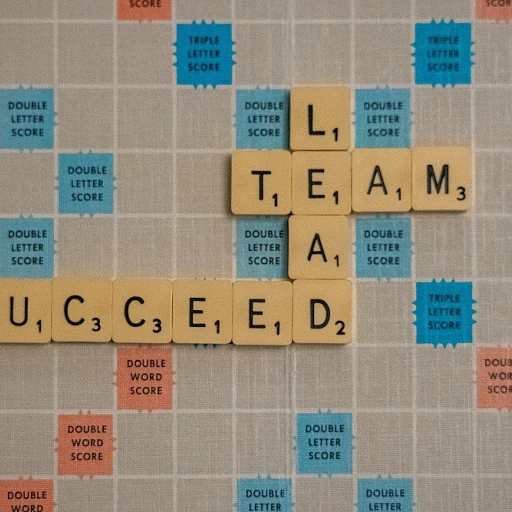
Understanding the Skills Gap
Exploring the Discrepancy in Skills
The skills gap has become a prevalent concern in the professional landscape, affecting organizations across various industries. It refers to the disparities between the skills required by employers and those possessed by the workforce. In cities like New York City, a hub for innovation and business, addressing this gap is critical to maintaining a competitive edge. This gap often centers around not only technical skills but also essential leadership capabilities and emotional intelligence.
Organizations striving for top-notch performance are increasingly investing in leadership development, such as executive coaching, to enhance their teams' abilities. This strategic focus is vital as businesses face rapid changes and complex challenges, underscoring the need for leaders who can adapt, lead effectively, and foster team performance. Understanding and bridging the skills gap is essential for executives seeking to harness the full potential of their teams.
Executive coaching serves as a valuable resource in this endeavor, providing tailored support that aligns with individual career paths and team dynamics. It helps senior executives, managers, and team leaders hone their skills, facilitating personal growth and organizational development. The integration of psychology and tailored coaching strategies ensures a comprehensive approach to leadership upliftment.
Efforts to address the skills gap should also look towards career coaching and team development strategies as part of a holistic framework. By fostering environments that promote continuous learning and development, organizations can cultivate good leaders and drive sustainable change. Exploring avenues such as enhancing performance through coaching is crucial for those aiming to bridge the gaps present in today's dynamic work environment.
The Role of Executive Coaching
The Transformative Power of Executive Coaching
In the bustling environment of New York City, executive coaching has become a pivotal tool for leaders seeking to bridge the skill gaps within their organizations. It plays a crucial role in leadership development, empowering executives and senior leaders to enhance their leadership skills and emotional intelligence, ultimately driving team performance forward.
Executive coaching in today's business landscape is not just about enhancing personal growth for leaders. It encompasses a psychology-driven approach tailored to the specific needs of leaders in various industries, facilitating both personal and organizational change. By leveraging years of experience, executive coaches assist leaders in identifying and overcoming obstacles that hinder their performance and that of their teams.
High-performing executives recognize that their effectiveness largely depends on how well they adapt and respond to new challenges. This is where specialized executive coaching leadership programs come into play. These coaching programs are designed to address the unique hurdles faced by leaders and help them cultivate the critical skills needed to lead work and coaching teams more effectively.
Research has highlighted how coaching in leadership and team development can lead to drastically improved outcomes. Such coaching interventions help transform executives into good leaders, who not only inspire their teams but also demonstrate the necessary flexibility and emotional acuity to navigate complex business environments. More insights on this can be explored through understanding the role of a skills development facilitator, which further enhances the impact of executive coaching.
Key Skills in Demand
Essential Qualities That Organizations Seek
In the current dynamic work environment, companies are continually looking for leaders who can adapt and thrive amidst change. The demand for specific skills is becoming more pressing, as organizations aim to maintain a competitive edge. Let’s explore some key skills in demand and how they can be enhanced through executive coaching. Firstly, emotional intelligence is becoming a cornerstone in leadership roles. It allows leaders to connect with their teams on a deeper level, fostering a collaborative and productive work atmosphere. Executive coaches often integrate emotional intelligence development into their programs, helping leaders to navigate interpersonal relationships effectively. Another crucial skill is adaptability. With industries evolving at an unprecedented rate, being adaptable is not just advantageous but essential. Leaders must learn to pivot and embrace change quickly, ensuring their teams do the same. Tailored coaching approaches help in developing this agility, enabling executives to lead confidently in the face of the unknown. Moreover, strong communication skills are paramount. Effective communication can bridge gaps in understanding and ensure alignment within teams. Leaders who master the art of clear, concise, and impactful communication can significantly boost team performance and outcomes. While technical skills are necessary, there is a growing emphasis on soft skills such as critical thinking and problem-solving. These skills enable executives to make informed decisions under pressure, benefiting both their career progression and their organizations' success. Executive coaches bring years of experience and strategies to help leaders hone these skills. To further explore the pivotal role of name and credentials badges in closing the skills gap, enhancing these key skills is a step in the right direction. Understanding what competencies are needed not only aids personal growth but also contributes significantly to organizational development as a whole. With focused coaching, leaders can emerge more competent and equipped, ready to tackle challenges head-on.Tailored Coaching Approaches
Customized Coaching for Individual Needs
In the bustling environment of New York City, executive coaching has become an essential tool for bridging the skills gap. Tailored coaching approaches are crucial for addressing the unique challenges faced by leaders and executives across various industries. These personalized strategies focus on enhancing leadership skills, emotional intelligence, and team performance, ensuring that executives can lead their teams effectively.
Adapting to Industry-Specific Demands
Each industry presents its own set of challenges and demands, requiring a nuanced approach to coaching. Executive coaches with years of experience in leadership development understand the intricacies of different sectors and tailor their methods accordingly. This industry-specific coaching helps senior executives and teams adapt to changes, improve performance, and drive personal growth.
Integrating Psychology and Leadership Development
Effective coaching often integrates principles of psychology to foster personal and professional development. By understanding the psychological aspects of leadership, coaches can help clients develop emotional intelligence, a critical component of successful leadership. This integration not only enhances individual performance but also contributes to the overall success of the organization.
Fostering Team Cohesion and Performance
Team coaching is another vital aspect of executive coaching in NYC. By focusing on team dynamics and communication, coaches help improve team cohesion and performance. This approach ensures that teams work together more effectively, leading to better outcomes and a more harmonious work environment.
Continuous Development and Career Growth
Executive coaching is not a one-time intervention but a continuous process of development and growth. By working closely with an executive coach, leaders can continuously refine their skills, adapt to new challenges, and achieve their career goals. This ongoing development is essential for maintaining a competitive edge in today's fast-paced business world.
Success Stories from NYC
Real-World Transformations in New York City
In the bustling environment of New York City, executive coaching has become a pivotal tool for bridging the skills gap among senior executives and leaders. The city's dynamic industries demand continuous personal growth and leadership development, and executive coaches have risen to the challenge, providing tailored coaching approaches that cater to the unique needs of their clients.
One notable example involves a financial services firm that faced challenges in team performance and leadership skills. Through targeted executive coaching, the firm was able to enhance emotional intelligence among its leaders, leading to improved team dynamics and overall performance. This transformation was not just about developing leadership skills but also about fostering a culture of continuous improvement and adaptability.
Another success story comes from the tech industry, where a company sought to improve its leadership training programs. By partnering with experienced executive coaches, they were able to implement a coaching leadership model that emphasized collaboration and innovation. This approach not only helped in bridging the skills gap but also positioned the company as a leader in its field.
These examples highlight the effectiveness of executive coaching in addressing the skills gap. By focusing on the specific needs of executives and their teams, coaching can lead to significant improvements in performance and career development. As more organizations in New York City recognize the value of executive coaching, the demand for skilled coaches continues to grow, further emphasizing the importance of choosing the right coach to lead these transformative efforts.
Choosing the Right Coach
Finding Your Ideal Executive Coach in NYC
Embarking on a journey to bridge the skills gap requires the right guidance and support. In New York City, the abundance of executive coaches can make it seem daunting to select the right one. However, understanding what to look for can simplify the process, ensuring you have the ideal partner for your leadership and personal growth.
To begin with, a good leader in the realm of executive coaching should possess substantial years of experience in leadership development. This ensures they have the expertise to address the nuanced challenges faced by senior executives across various industries.
Evaluate the executive coach's approach to executive leadership and their ability to support team performance and coaching. A reputable coach will employ diverse methods tailored to enhance specific leadership skills through team coaching and individual sessions.
Additionally, seek an executive coach who integrates emotional intelligence into their coaching framework. The ability to understand and manage emotions is crucial for leaders aiming to effectively lead teams, drive change, and boost work performance.
- Industry-Specific Experience: Identify if the coach has experience within your specific sector which may directly correlate to the challenges you face.
- Development Approach: Opt for a coach who emphasizes continuous personal growth and leadership training. A coach's methodology should align with your career ambitions and the overall goals for your team.
- Client Testimonials: Look for testimonials or success stories from past clients that illustrate the coach's ability to deliver tangible results.
- Certification and Credentials: Verification of credentials demonstrates a commitment to the coaching profession and adherence to recognized standards.
Utilize resources and reviews available on coaching networks and professional websites to make informed decisions. This ensures you engage with a coach whose style and techniques will best help you achieve leadership transformation. With the right coach by your side, you'll be well-equipped to navigate the dynamic landscape of skills development in New York City.













